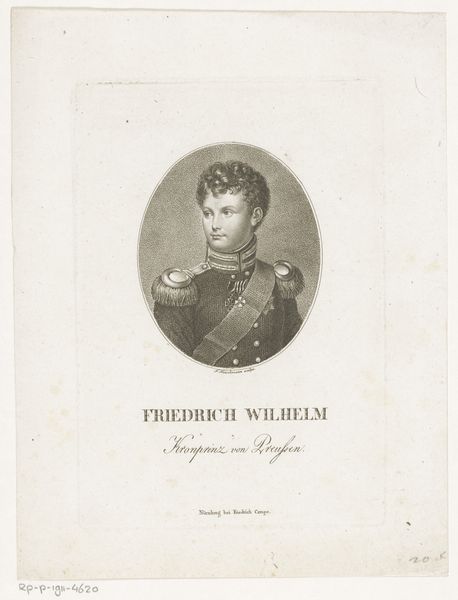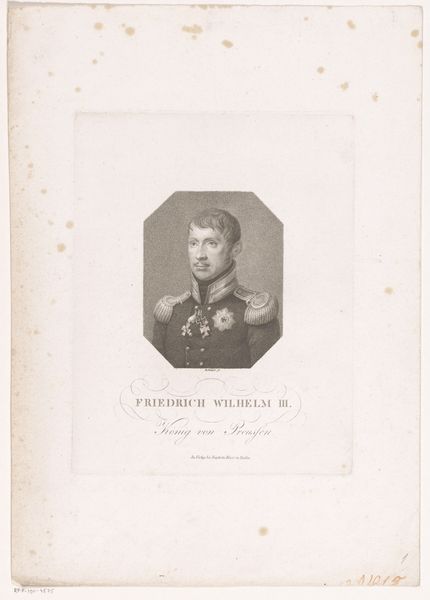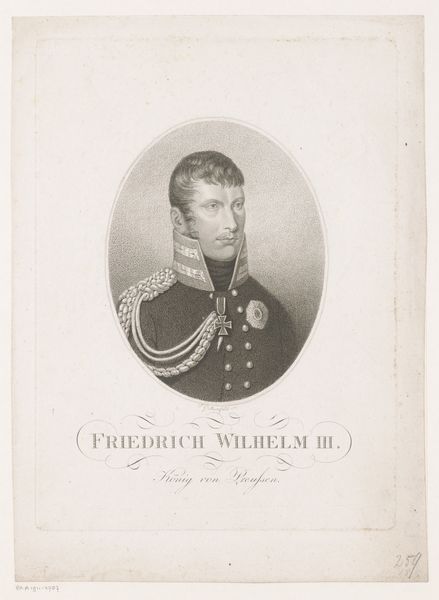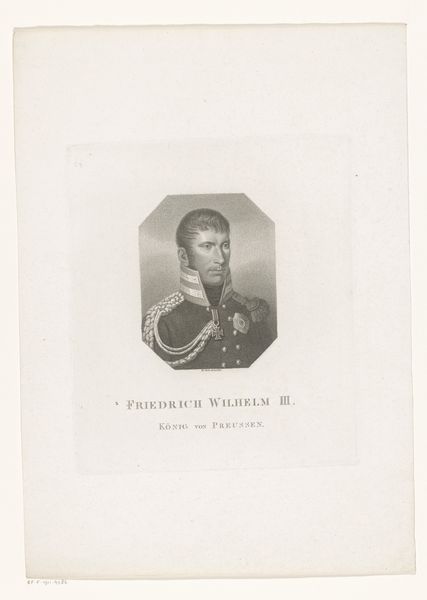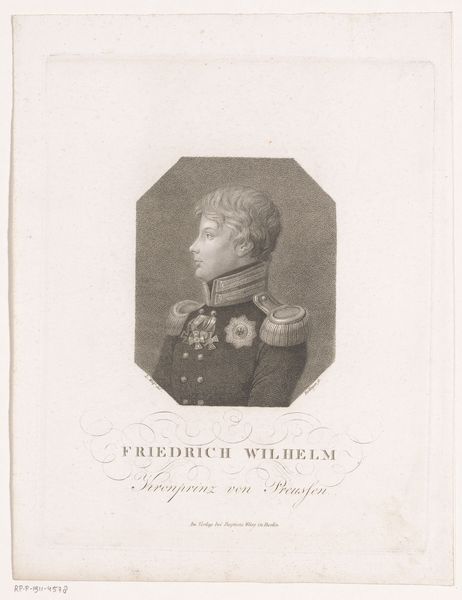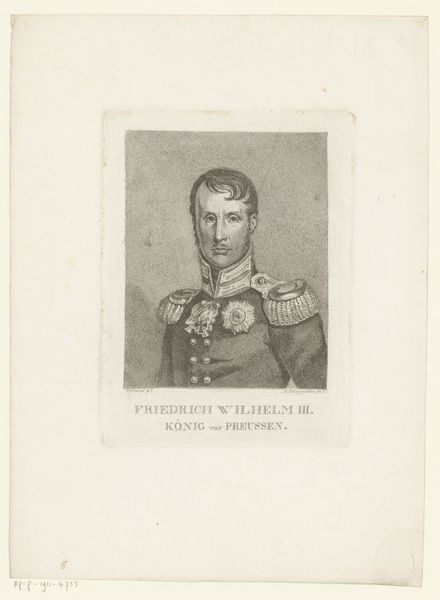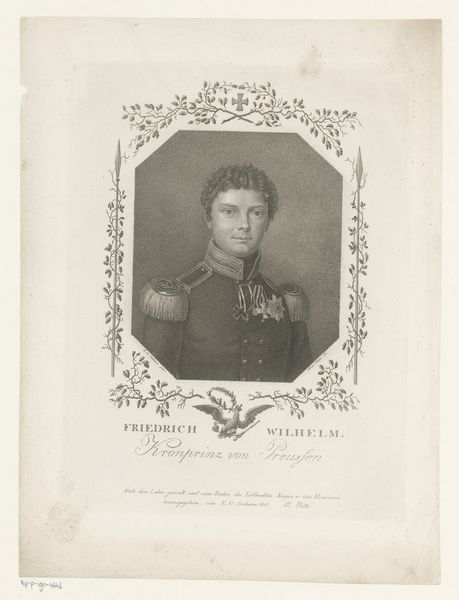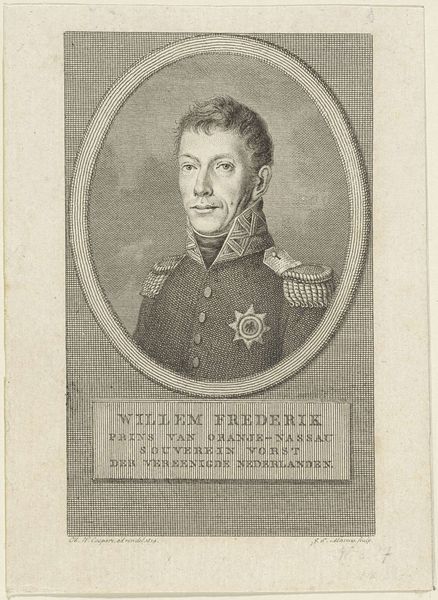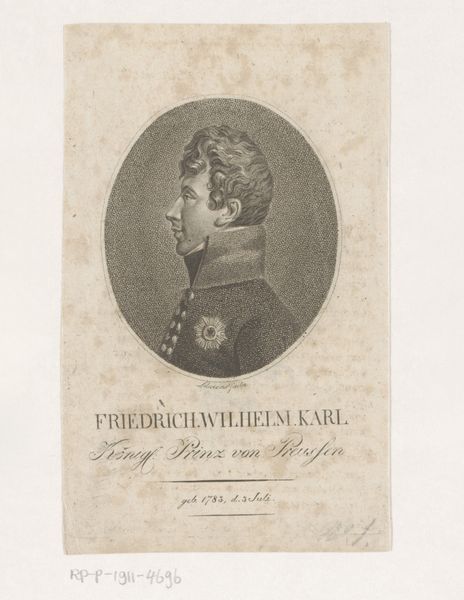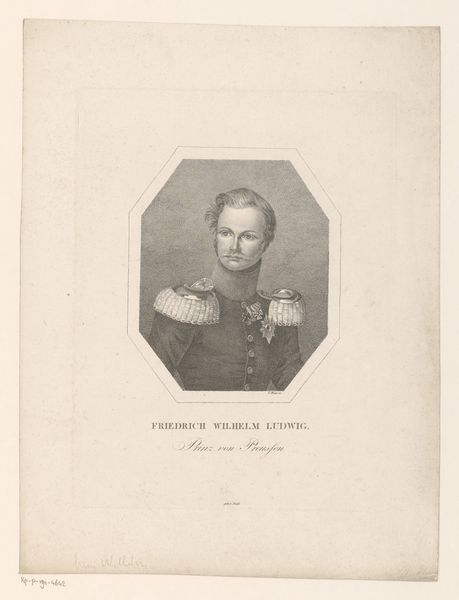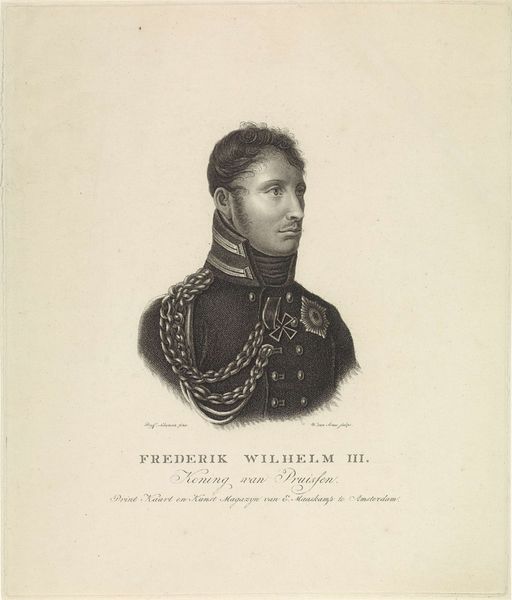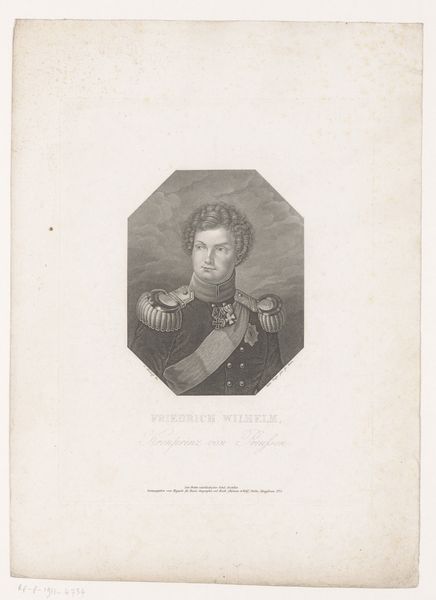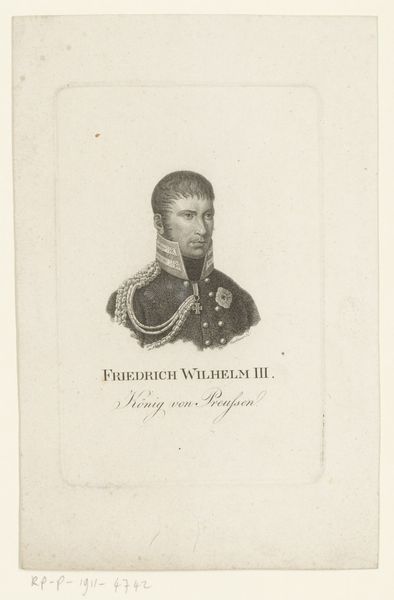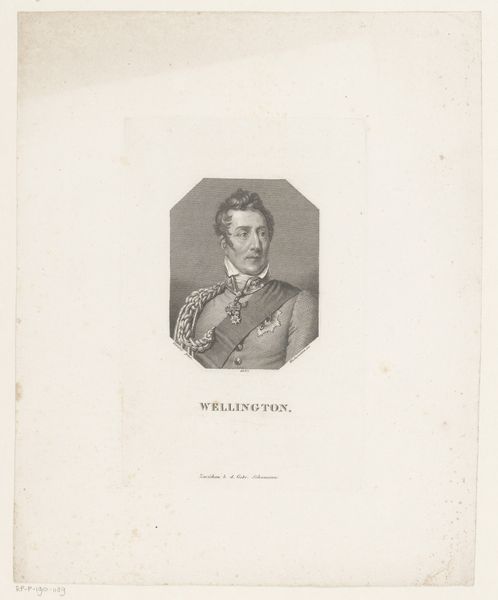
print, engraving
#
portrait
#
neoclacissism
# print
#
old engraving style
#
history-painting
#
engraving
Dimensions: height 182 mm, width 134 mm
Copyright: Rijks Museum: Open Domain
This is Friedrich Fleischmann's portrait of Frederik Willem III, made in the early 19th century using printmaking techniques. During this period, Prussia was navigating the complex political landscape of post-Napoleonic Europe, seeking to reassert its power while dealing with internal pressures for reform. Fleischmann's portrait offers insight into the performance of power and identity. Willem is adorned with the symbols of his authority, yet his gaze and expression hint at the weight of responsibility. The King’s identity was constructed to reassure his power after the defeat of Prussia by Napoleon in 1806. How does the artist negotiate the tension between portraying the sitter as an individual while also embodying the symbolic weight of monarchy? How do such representations reinforce societal hierarchies and expectations? Consider how this portrait reflects and shapes our understanding of leadership, authority, and the burdens of representation.
Comments
No comments
Be the first to comment and join the conversation on the ultimate creative platform.
